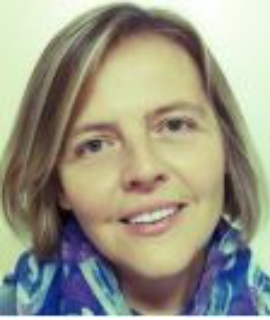Title : Anaerobic digestion of wastes and by-products of the sugar beet industry as a source of gaseous biofuels
Abstract:
Gas biofuels, biohydrogen (energy carrier) and biomethane are the products of the anaerobic digestion (AD) of biomass by microorganisms. There are four successive stages: (i) hydrolysis, (ii) acidogenesis, where as a result of dark fermentation biohydrogen is formed, an intermediate product of AD, (iii) acetogenesis and (iv) methanogenesis, with biomethane as the end product. Understanding the complexity of metabolic pathways and chemical reactions carried out by microorganisms allows for the separation of AD stages and the optimization of biohydrogen and biomethane production.
Currently, there is a great interest in the development of new technologies for the modernization of wastewater treatment plants in order to control the release of biogas and obtain methane for energy purposes. In addition, as part of the development of innovative technologies based on microbiological processes, modern installations of anaerobic digestion of biomass are built, where the stages of bio-hydrogen production (hydrolysis and acidogenesis) and biomethane production (acetogenesis and methanogenesis) are separated to obtain these two gases under controlled conditions. Multistage systems provide optimal conditions for each stage, stabilize the process, and increase energy recovery from substrates. Hydrogen is considered as an energy carrier of the future.
Food industry plants are a very attractive field for the mentioned above activities. Sugar factories are of particular interest. By-products and wastes of the sugar industry, due to the high content of carbohydrates, are a valuable substrate for microorganisms that release biohydrogen and biomethane as a result of their metabolic activities.
Our work encompass three categories:
(i) Basic research involve biochemical and molecular analysis of anaerobic digestion microbial communities. Our findings concern the metabolic pathways of biohydrogen and biomethane production and new inhibitors of these reactions. At the acidogenic stage, the reaction of lactate and acetate convertion to butyrate, determined by the balance between dark fermentation bacteria and lactic acid bacteria, is important for the production of biohydrogen. At the acetogenic stage it was revealed that the dominant products of acidogenesis determine the type of methane formation pathway.
(ii) R&D works involve demonstration of an innovative technology for the continuous production of biohydrogen and biomethane in the two-stage anaerobic digestion of molasses (a by-product of the sugar industry). The installation developed on a laboratory scale produces 73.9–122.0 dm3 biohydrogen and 287.2–398.2 dm3 biomethane from 1 kg of molasses in the stable conditions. In cooperation with an industrial partner, the installation was scaled up 20- and 200-fold in the Dobrzelin Sugar Factory, maintaining comparable efficiency of biohydrogen and biomethane production.
(iii) Implementation works include modernization of the wastewater treatment plant in the Dobrzelin Sugar Factory, that processes spent sugar beet transport water. New units: biogas purification system, biogas storage tank and
a co-generator were installed to produce electricity and heat. The generated electricity exceeds twice the demand of the wastewater treatment plant. Energy production from biogas in the sugar factory wastewater treatment plant reduces greenhouse gas emissions and the consumption of fossil fuels, provides distributed energy sources, brings financial benefits and aims to achieve a circular economy.




